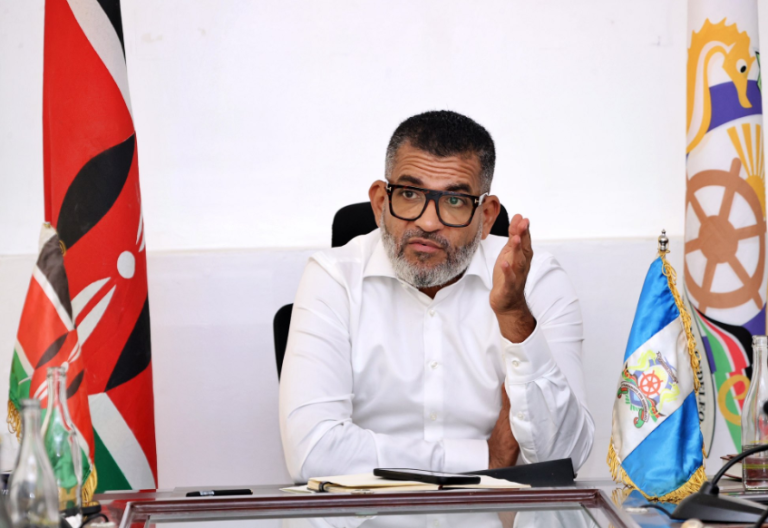Self and public awareness is the first step in remedying mental health illnesses in Kenya

By SELINA CHITERI
Life can sometimes be full of pressure and there is no man, woman whether an adult nor a teenager can openly confess that they never experienced anything that seemed ‘difficult’ to them and handled differently depending on one’s mental status. On the surface, people may appear normal but that is not always the case as many fight inner battles that drain their wellbeing and may later degenerate to depression or even suicide and in other cases involving wiping out ones own family members alongside themselves. Are such kind of people different from us and do they actually notice when they develop a mental disorder? Again, are you consciously aware of your mental health status? That other person maybe you, a sibling, a neighbour or a stranger that you may get to hear only as a statistic. Apparently, mental health affects anyone and everyone and sadly, only a minority of Kenyans are cognizant of this with low awareness of mental disorders pointed out as a major challenge facing mental health management. As citizens, our awareness and understanding of mental disorders is among the first step that Kenyans should intentionally take in reducing the ever-growing statistics of cases of suicide and depression. This awareness must involve understanding mental health and the dangers it portends, all while being conscious of the symptoms to avert a self-induced disaster such as suicide.
Estimated at 11.5 million people as at 2020, research has indicated that mental illness is a common occurrence in Kenya with disorders emanating from neurotic or personality disorders, substance abuse or even dementia. To others it is illness associated with feelings of anxiety, phobia, stress, shame, post-traumatic stress, shame, panic, grief, phobia and depression which are among the aggravating signs of mental illness or disorders. This literary means that one in every four Kenyans has had a mental health challenge, which is alarming, especially with the rising rate of suicide cases that saw almost 500 people commit suicide between May and June 2021 a record high from the whole of 2020. Worse of, the cases reported have ranged from as young as 9 years to 76 years old with urgency required in remedying the situation. This remedy can only be successful if Kenyans are fully aware of mental illness or disorders in terms of understanding, prevention or management.
Mental health has been proven to be a key determinant in the overall health and socio-economic development of a society with the World Health Organization describing it as ‘a state of well-being where individuals recognize and realize their abilities, are able to cope with the normal stresses of life, work productively and fruitfully, and make contribution to their communities. Whether or not one realizes, mental health has an overbearing influence on an individual’s propensity to inter alia living a healthy lifestyle, recovering from a physical illness and productivity. This form of illness manifests in different ways depending on an individual, and being consciously aware of the symptoms is critical prevention care before deteriorating to depression.
Though it may appear as a thin line from other forms of illness, emerging signs and symptoms of mental illness may begin manifesting as a change in feelings or demeanor, excessive anxiety, long-lasting irritability, dramatic change in eating or sleeping pattern, low energy, social withdrawal among others depending one’s individuality. Others may remarkably appear to have a perfect life managing well to keep up appearances and even being highly productive but gradually dying on the inside. And this is the reason why it is a common occurrence to hear of ‘but her life seemed so perfect’ or ‘he looked so happy and fulfilled, what could have possibly gone wrong?’ This is mental illness and the faster we are consciously aware of the status of our mental health, the better for us.
Fortunately, the Government of Kenya is fully aware of the mounting problem of mental illness and through its stewardship has ensured that measures and strategies are in place in achieving an optimal health status under the Kenya Menta Health Policy 2015-2030, a policy that is also enshrined in the Constitution of Kenya 2010, Article 43 (1a). The Article provides that “every person has the right to the highest attainable standard of health, which includes the right to healthcare services”. Alongside this the government in 2019 set a Kenya mental health taskforce which after an assessment indicated in 2020 that the country was then facing a high burden of mental illness that was greatly exacerbated by the occurrence of the Covid-19 pandemic also including ill-health, psychosocial disability and premature mortality. Further afield, there have been huge gaps when it comes to access to care worsened by mental health stigma on multiple levels. These initiatives have so far seen an increase in mental health literacy among health workers through an increase in education and awareness while also partnering with organizations that advocate for mental health.
These strides are indeed commendable but Kenyans must still play their part and be receptive on recognizing the importance of mental health and give it the attention it deserves as a problem facing Kenyans from different walks of life, while seeking preventive measures or managing the situation all the while. Additionally, bridging the gaps in access to care including the cost will require a holistic stakeholder approach to intensive awareness campaigns as well as grassroots advocacy at the community level.
For you the avid reader, you have an idea of what mental health involves. Educate a friend, a neighbour or a family member, for you might just save a life.











